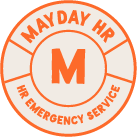The benefits of hiring an HR consultant
The benefits of hiring an HR consultant
As a business owner, line manager or HR professional, sometimes we are faced with a situation that is complex and risky. I’m talking about grievances that perhaps have wide ranging repercussions – perhaps an employee has complained about a senior member of the team or made allegations relating to health and safety, discrimination or whistleblowing. You know the stakes are high and you also know it’s going to take an awful lot of time to deal with.

This is where getting an HR consultant in to deal with this issue is a strong move. Saving you time is one reason, however in this blog I share some other reasons why getting someone like me in is a good idea:
Impartiality and Objectivity: As an external HR consultant, I bring an unbiased perspective. I’m not influenced by internal politics or relationships, allowing for a more objective assessment of the situation. This neutrality ensures fair treatment and reduces the risk of favouritism or bias.
Expertise and Experience: I specialise in conflict resolution and have a breadth of experience dealing with various workplace issues. This expertise offers unique insights, best practices, and effective strategies that an internal team might not possess.
Confidentiality and Trust: Employees might feel more comfortable sharing sensitive information with an external consultant, as there may be concerns about confidentiality within the business. This trust can encourage open communication, leading to a more comprehensive understanding of the situation.
Reduced Conflict of Interest: Internal HR teams might face conflicts of interest when handling grievances involving colleagues they work closely with or have personal connections to. Bringing in an external consultant like me mitigates this conflict, ensuring that decisions are made solely based on the merits of the case.
Legal Compliance and Risk Mitigation: As an HR consultant, I am well-versed in employment laws and regulations and keep myself and my knowledge up to date. My involvement can ensure that the grievance process adheres to legal requirements, reducing the risk of potential legal repercussions for the employer.

Working with someone like me can provide a fresh perspective, specialised expertise, and a fair, objective approach to resolving internal grievances, ultimately contributing to a healthier and more transparent workplace environment. It will also ensure you deal with any issues that arise rather than leave them brushed under the carpet.
If you would like some assistance with a grievance or investigation, please contact me for an informal and no obligation chat by emailing [email protected]


